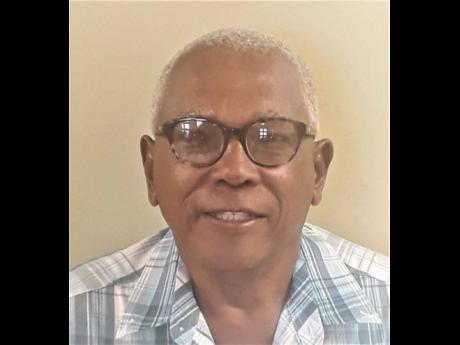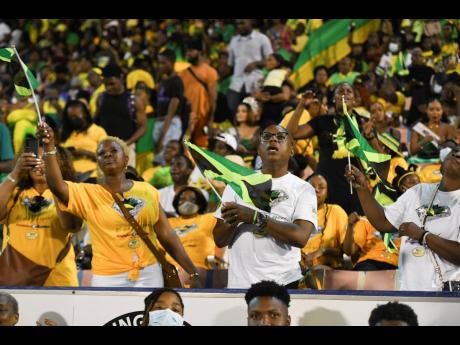Lance Neita | A lot to talk about this holiday season
With the Independence and Emancipation holidays season just around the corner, one would have hoped that we could take a break from our habitual ‘cass-cass’ without having to contend with any more surprises being added to those cantankerous issues that dominate our talk shows and attention a full 24 hours per day.
The nine-day issue of the public servants pay package has imploded into a 60-day wonder, the National Integrity Commission is being deafened by bell ringers, social media has gone into a frenzy trying to identify the parliamentarians who are slated for investigation, and the West Indies is busy chalking up another humiliating defeat at the hands of anybody’s cricket team.
Then just when we thought we had got our fill, along comes the news of a stand-off between little Jamaica and big USA over what is politely called a diplomatic row. This time, we don’t have to ask Andrew to call it. We can call it ourselves in plain language for what it is.
This is not the first diplomatic row between Jamaica and our northern neighbours. In 1973, late Prime Minister Michael Manley was unequivocal in his denunciation of American Ambassador Vincent deRoulet as persona non grata, thus forcing the ambassador to resign and be recalled.
There was also another row, which emerged in 2018, when a high-profile US Navy Officer warned Jamaica in a public speech in Kingston to be wary of China’s presence in the region.
Contentious argument
This one escalated into quite a contentious argument, with the Chinese embassy in Kingston firing back across the bow at the US official. The undiplomatic exchange died down quietly, with all sides waving the white flag.
In the present instance, there are more than enough flags to go around as both sides hustle to settle this issue before it gets out of hand.
But so far, the American reprisal against Jamaica‘s principled stand has been nothing short of high handed.
No doubt in true diplomatic etiquette, ambassadors will be summoned, the protest will be registered, and the counter-allegations of undue interference exchanged. But that alone can’t do it. We need a little more of the legendary ‘Bustamante backbone’ in our treatment of these dicey matters that challenge our autonomy.
Prior to Independence and before we acquired ambassadorial status at home and overseas, we had the British colonial governors to deal with. The Founding Fathers of Independence - Alexander Bustamante and Norman Manley - were usually quite understanding of the governors’ position as head of the government, but ‘Busta’, in particular, paid short shrift to any expression of rudeness or disrespect to the Jamaican claim to its own sovereignty.
The story is that at one stage during the pre-independence meetings in London, ‘Busta’ rolled up his sleeves and challenged the British colonial secretary to step outside to resolve an issue. And his more dignified cousin, Norman Manley, who boxed for his division in the British army in World War 1, was predisposed and ready to join his cousin in the ring.
As for relations with America, “We are with the West” was Bustamante’s response as prime minister to the question posed at a press conference in 1962, “What will your foreign policy be?” With the West, yes, but not on all fronts.
The case of the diplomatic row, plus other nagging issues like general and parish council elections, constituency representation, yam selling at $450 per pound, climate change, and that little thing about crime that will not go away, will give us a lot to talk about this holiday season. Already my telephone rings constantly with the nasal accent asking, “Hey! What’s goin’ on down dere?”
You will have two public holidays to talk it through. A glance at the calendar tells me that once again we are going to have a convoluted package as Emancipation Day falls on a Tuesday, surrounded by two full working days. The following week we celebrate Independence, and here we find the same conundrum as Independence falls on a Sunday (celebrated the following day at the beginning of the working week).
The granting of two holidays within three working days of each other still confounds me, and as will be the case this August, represents the forfeiture of an enormous amount of time and money, and for business and industry, a stop and start.
This double holiday was introduced in 1997 so that we could bring back the August 1 Emancipation Day into full focus. As far as I am concerned, we could have rolled the two holidays into one without losing any significance or meaning and celebrate both events on the first Monday of August, thus guaranteeing a long weekend as had been the case since 1962.
EXTRA PLAUDITS
I think political considerations had their way as the government of the day earned extra plaudits for bringing back Emancipation Day.
Don’t get me wrong. I fully recognise and appreciate the importance of August 1 and have always celebrated this epoch-making day with several communities and districts that never gave up on their celebrations as the first Monday was firmly engraved in hearts and minds since Emancipation Day 1834.
But the last thing a poor country like Jamaica needs is another holiday. For employers it means double time twice per week or a drop in productivity. For others, it has been a bit of a good time to have the two but with much confusion around the double dip sometimes occurring as it will this year.
The dates are so close together that we should have rolled them into one and maintained the first Monday as the holiday, thus guaranteeing the continuation of a long and unbroken holiday weekend rather than seek such an odd compromise.
So there, I have given you something extra to talk about come August. Sometimes it’s best to be like the diplomats and just chat it out in diplomatic language. One of the typical characteristics of diplomatic language is a certain subdued tone, utilising some kind of understatement. The British, not the Americans, do it best. But be careful. As the American humourist Will Rogers said, “Diplomacy is the art of saying ‘nice doggie’ until you can find a rock.”
Lance Neita is a is a public relations professional, writer, and historian. Send feedback to columns@gleanerjm.com or lanceneita@hotmail.com.


